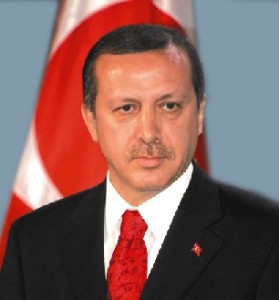In light of the sensitivity in Israeli-Turkish relations and the fear to the freshly minted reconciliation pact, Jerusalem did not rush to comment until it was clear the coup had failed. Israel believes Ankara will also want to continue as planned.
By Barak Ravid, Haaretz
Many of those present in the situation room at the Foreign Ministry and the resident of the house on Balfour Street in Jerusalem presumably had mixed feelings on Friday night. On the one hand, no one in the Israeli cabinet would shed a tear if they learned on Saturday morning that Turkish President Recep Tayyip Erdogan was in a jail cell rather than celebrating the quashing of a coup with his supporters at Istanbul’s airport. On the other, imagine the embarrassment if it transpired that Israel had just signed a reconciliation deal and agreed to pay $20 million to a man who had suddenly become irrelevant.
Shortly after the first reports of the military coup in Turkey surfaced, Prime Minister Benjamin Netanyahu was updated in detail. The situation room at the Foreign Ministry was placed on an emergency footing and Israel’s diplomats in Istanbul and Ankara – who were directed to stay home – tried, to the best of their abilities, to understand what was going on and to transmit this to the government back in Jerusalem.
For many hours, as more and more dramatic reports arrived from Turkey, Israel maintained an official silence and didn’t take a stance. During the night, as battles between the rebels and forces loyal to Erdogan were raging, U.S. President Barack Obama and Secretary of State John Kerry issued clear messages opposing the military coup and supporting the democratically elected government in Turkey.
Later, similar messages came from the German Foreign Ministry and on behalf of the European Union’s foreign policy chief, Federica Mogherini.
There was a rather prosaic reason for the prolonged silence from Jerusalem. After all, events were unfolding over the Jewish Shabbat. There were other reasons as well, though. In light of the great sensitivity in Israeli-Turkish relations and the fact that the reconciliation accord was still in its infancy, the Foreign Ministry decided not to rush to comment but wait until things cleared up, watching how the international community was responding to events.
Israel’s announcement, with its wording approved by Netanyahu, came 15 hours after the attempted coup began, when it was clear it had failed. In a press statement, Foreign Ministry Spokesman Emmanuel Nahshon said: “Israel respects the democratic process in Turkey and expects that the two countries’ reconciliation will continue.”
Although the announcement was laconic, the message was directed at Erdogan and was meant to clarify that, from Israel’s perspective and regarding the implementation of their agreement, it was business as usual.
Senior officials in Jerusalem said that it was important for Israel to emphasize that, on the one hand, what happened in Turkey didn’t diminish Jerusalem’s wish to normalize its relations with Ankara; and on the other, to send a polite warning that no one in Turkey should think of using the attempted coup as an excuse to violate the freshly minted agreement.
This week, Turkey’s parliament is expected to vote on the reconciliation agreement and pass a law that will annul any claims against Israeli officers and soldiers who were involved in the takeover of the flotilla to Gaza in May 2010. Until this law is passed, Israel will not transfer the $20 million compensation fund for the victims’ families and the entire reconciliation pact would be in danger of collapsing. Israel believes the Turks will also want to show that it’s business as usual and continue as scheduled, so will hold the vote in parliament as planned.
If everything proceeds according to the plan laid out in the rapprochement deal, Israel will appoint a new ambassador to Ankara in the coming weeks.
Whomever is appointed will have a historic opportunity to lead the rehabilitation in relations – but this weekend’s events in Turkey will make the job even more fascinating and sensitive.
Netanyahu has yet to decide if he wants this appointment to be a political or professional one (i.e., from within the ministry’s ranks). It is currently believed that he’ll choose the latter option.
If this is the case, the struggle among the dozens of diplomats competing for the job is expected to be particularly heated and stormy.



















